This July we hosted the second event in our series of talks as part of our Empower for Change campaign. The first was on gender diversity and you can read more about it here.
Our most recent talk focussed on BAME talent within finance and what is needed to turn up the dial on diversity within organisations. Altus’ founder Ed Chamberlain was joined by an excellent panel including:
Lydia Ofori – CEO at Victoria Lion Partners
Nicole Downer – Managing Partner and Head of Investor Relations, MV Credit
Rachel Green – Associate Director, Aviva Investors. Ambassador of the Diversity Project and co-founder of #TalkAboutBlack
Tingting Peng – Head of Investor Relations & Business Development, ESO Capital
Arfan Akhtar – Associate Director, Altus Partners
Here are 5 key things we learnt at the webinar.
Inclusion means belonging
Tingting kicked off our webinar with a fantastic quote:
“Diversity is being invited to the party, inclusion is being asked to dance and belonging is dancing like no one is watching.”
When it comes to getting BAME talent into the industry we don’t just need to focus on opening the doors but creating an environment of inclusivity. As Tingting went on to say, “you need a sense of belonging, that you have value contribution and are seen.” But how can we create this environment where inclusivity is an ongoing process? Nicole had some suggestions.
“Training and mentoring is where you start. Conversations like this one, talking in public, debating and being open about it. It's a difficult topic and some people feel uncomfortable talking about it. People might identify themselves differently to how they’re seen. There are a lot of complex issues. There needs to be open debate and a clear process internally.”
Leading from the top: you can’t be what you can’t see
“There are so few senior role models, so the career path for ethnic groups is unclear. You find yourself asking, how do I look up to someone and who do I speak to ask difficult questions?” Tingting has hit the nail on the head. To feel comfortable asking uneasy questions and to be able to see a potential future path, BAME hires need relatable role models.
“We need to understand unconscious bias. The issues we think we’re comfortable with but aren’t.” Says Nicola. But it’s not just about how we behave with our employees, it’s also about widening the talent pool.
“We need to think about how we recruit and be prescriptive about hiring across socioeconomic and gender diversity. The industry must move away from hiring the same people from X, Y, Z school and have a degree in finance from a certain university. We need a robust hiring process that makes it clear you want to be diverse.”
Mentoring and sponsoring
Apart from the recruitment process, there are other ways senior leaders can support diverse talent. Nicole goes on to suggest that, “firms can do a lot more, especially London ones, and should do more with subsets in our group. Working with young people in more challenging economic situations. We should open the possibility of what a career in finance involves.”
Lydia builds on this, “the idea of encouraging the youth is exciting but I'm conscious that the road to where they want to be is skill and skills need training. Make it clear what is required and help them get through it. Also mentoring shouldn’t just be diverse to diverse, but across everyone. That way when the next generation joins they can relate to everyone across the business. As well as mentoring sponsorship is also needed. Someone within an organisation backing you, giving you visibility in the community or organisation and that can push you up to the c suite. That needs to happen.”
But it’s not just the senior leaders who are needed to make the change, says Arfan. “To get an Obama you need a Martin Luther King to start breaking the barriers. Seniors need to do more now for the next generation but it takes grassroots, middle and seniors to work together to get change.”
Networks and being your own champion
However, if you’re part of the BAME community, you can’t just rely on the industry for change. You need to be your own champion, says Rachel.
“We’ve spoken about what organisations can do but there should be an onus on individuals as well. Irrespective of if there is a program or not, we know there is an unspoken code, we know it's not a meritocracy, so self promote in your networks. You need to challenge your mindset that meritoriously doesn’t work. We also work in political firms as well we need to be able to understand that and why and how decisions are made.”
Rachel suggests that BAME talent should consider their mindsets and adapt to have a growth mindset. “BAME talent, we have to challenge the way we’ve been taught to think. Seek people who will challenge you so you are broken and built back up over again. The breaking down is removing the stuff that you know isn’t good. Getting rid of cultural baggage you don’t need. it’s toxic.”
However, Rachel doesn't suggest you go completely alone. “ Nepotism exists, so never underestimate the value of your network. I have a mentoring circle outside of where I work, someone I can speak to about career progression, someone for politics. Surround yourself with people who will challenge and develop you.”
If you’re still feeling unsure follow Rachel’s advice and “fake it till you believe it. You do belong. You were hired for the job.”
What can organisations do?
“Data. Companies need to publish about the pay-gap for minorities. Also D&I shouldn’t be in HR, HR protects the business D&I should be accountable to the c-suite and the CEO.” Says Rachel.
Tingting expands on the need for the D&I role. “Think about having a dedicated D&I professional, how that person can contribute value. From where I am in investment management, it’s all about making money. You make money you get a bonus. But the quantifiable value you add to the firm by leading D&I needs to be accounted for.”
At Altus Partners we are passionate about driving diversity in Private Equity. The Empower for Change initiative is one activity we are doing in order to promote change. Our third and final talk will focus on mental health and will take place in October. You can join our mailing list to keep up to date with all future events.

.png)
.png)
.png)
.png)

.png)
.png)




Connect with us